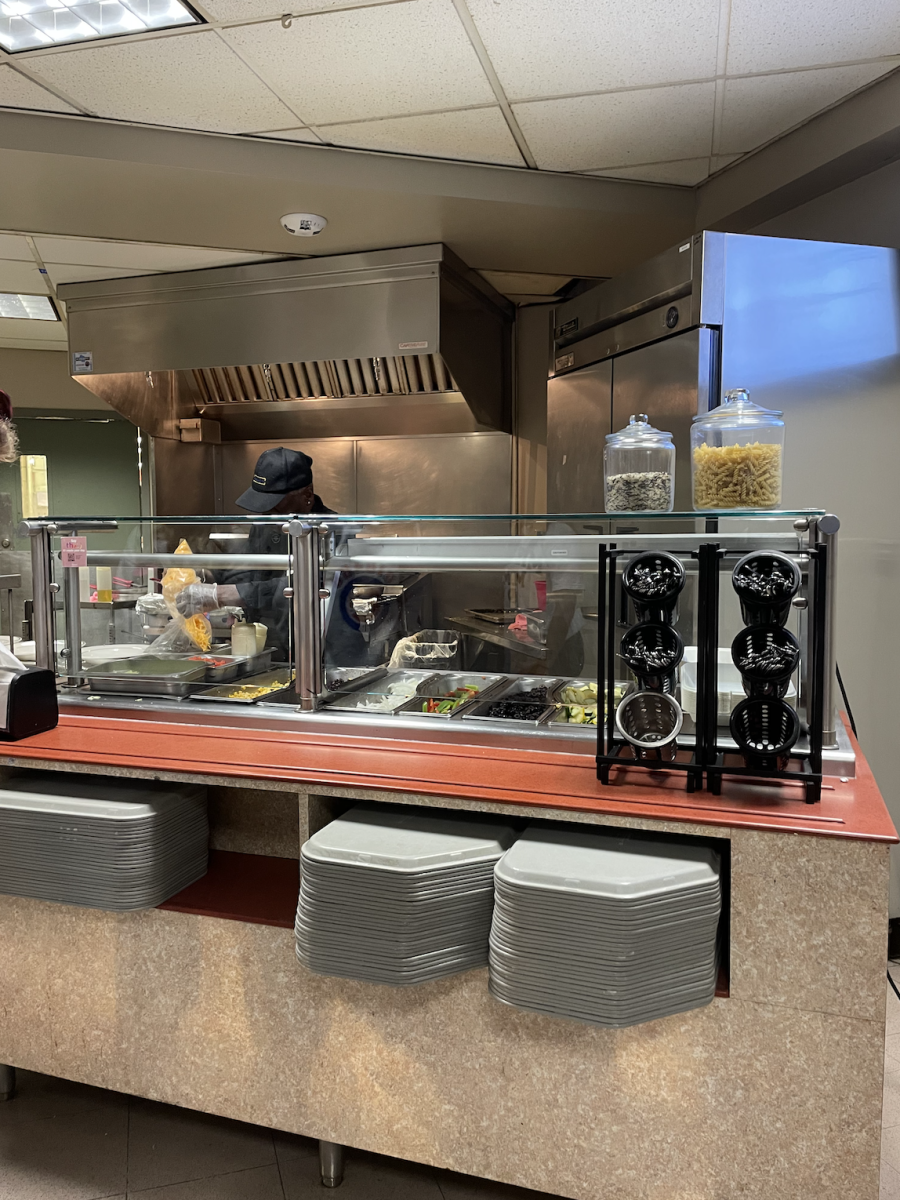Who is Sodexo?
To students here at Marquette University, Sodexo resides in the faces of the friendly cafeteria workers we see nearly every day.
But to others, Sodexo, Inc. is a company that often finds itself at the center of social justice debates. The company has been protested numerous times by workers and students alike for discrimination and low wages, and their dealings in prison management have stirred the ire of many.
And yet, Sodexo has received much positive recognition, including being named “One of the world’s best outsourcing companies” by International Association of Outsourcing Professionals, and won the Straight for Equality in Business award from Parent, Families and Friends of Lesbians and Gays for their commitment to LGBT workers.
Sodexo isn’t just McCormick brunch or Schroeder chicken parmesan. It’s an international company with more than 350,000 global employees that serve everything from colleges to hospitals to prisons.
Students voiced their exact concerns at the Sodexo forum held two weeks ago. They felt the panel’s answers revealed little about how Sodexo operates internationally and its involvement in lawsuits and prisons.
Although the forum left some issues untouched, what is clear is how students crave more transparent information about Sodexo’s international and domestic business practices.
Administrative diversity
The Paris-based company has risen through the ranks of global notoriety in food service.
Founded in 1966 by Pierre Bellon, the originally-named “Sodexho Alliance” acquired Marriot Management Services in 1998, a merger that solidified Sodexho as a major player in the North American food-service industry. The company was first traded on the New York Stock Exchange in 2002 and changed its name in 2008 to Sodexo.
Named a Fortune 500 Global Company, Sodexo is the 22nd largest employer in the world and is regarded as one of the giants in the food-service industry, along with Compass Group PLC and Aramark Corp.
Some lawsuits filed against Sodexo resulted in huge payouts from the company, though lawsuits are commonplace for most large corporations.
In 2001, 3,000 black employees brought on a class-action lawsuit, charging that they were denied promotions and passed over for less-qualified white counterparts since 1998.
In 2005, Sodexo agreed to pay out $80 million to 10 primary plaintiffs and other employees attached to the case, in an effort to settle the case out of court.
Sodexo denied any wrongdoing through a consent decree, which is a voluntary agreement between two parties to cease legal activities in exchange for a settlement. They also agreed to a five-year plan to improve diversity practices.
At the end of the five-year period, the Service Employees International Union, which has backed Sodexo workers in expressing their dissatisfaction with company practices, published a report entitled, “Missing the Mark: Revisiting Sodexo’s Record on Diversity,” that argued Sodexo had done little to create more opportunities for African-Americans.
The report states that from 2004 to ’09 the percentage of black managers increased 0.14 percent. Sodexo’s current percentage of black and minority managers is below that of the food service and janitorial industries, according to the SEIU report.
But this year, the National Restaurant Association honored Sodexo with its Faces of Diversity award, which recognizes restaurant companies that exhibit leadership and advocate for diversity.
Worker protests
The alleged discrimination and low wages offered by Sodexo have recently become the source of a string of protests aimed at the company.
Last week, Sodexo cafeteria workers at the University of Pittsburgh went on a three-day strike protesting the perceived low wages and intimidation from the company to prevent unionizing.
In the past three weeks, protests have also arisen at Tulane and Loyola universities in New Orleans, and Merrimack College and Clark University in Massachusetts.
“We were sitting at the table with Sodexo,” said Tanya Aquino, a spokeswoman for the SEIU. “But it came to a point where talking with Sodexo didn’t yield results. That’s when workers took it upon themselves to demonstrate in an unprecedented show of activism.”
Aquino said Sodexo responded to attempts to unionize with “interrogations, surveillance and even termination.”
“Workers want Sodexo to live up to their promise to ensure a worker’s right to a union without intimidation.”
The weeks of protests also included one outside Sodexo’s U.S. headquarters in Gaithersburg, Md. Twelve people were arrested and cited, including actor Danny Glover and both the president and executive vice president of the SEIU.
“We’ve seen quite a lot of activity on campuses,” said Nancy Judy, a Sodexo representative at the Sodexo forum on April 19, in response to the protests. “We feel (protesters and the SEIU) are frightening our workers and misrepresenting information.”
In its first-ever ranking, Working Mothers magazine named Sodexo one of America’s best companies to work for as an hourly worker.
Tim Olsen, communication manager in Marquette’s Office of Marketing and Communication, said neither employees nor the SEIU have approached the university regarding workers rights or possible protests.
Protesters have made wages a priority in marches, walkouts and pickets. According to Clean Up Sodexo, a group started by the SEIU, a Sodexo employee makes $8.27 per hour, an annual income of $17,201.
Meanwhile, the U.S. Department of Health and Human Services has established the poverty threshold for a family of three at $18,310, and a family of four at $22,050.
When presented with the issue of protests and wages at the Sodexo forum, Judy deemed the protests part of a “smear campaign” waged against Sodexo by the SEIU. When asked what non-student employees earn at Marquette, the panel said they did not have the numbers on hand.
In Sodexo’s blog, Tom Mackall, vice president of Sodexo employee and corporate relations, wrote, “During the past few weeks and months, the labor union Service Employees International Union has been very vocal in the media and very active on many Sodexo-served sites across the country. They have been freely spreading serious misinformation about the company as it relates to our employees. This is part of their campaign to gain jurisdiction to the exclusion of other unions…”
But Aquino of SEIU said this is not the case.
“A ‘smear campaign’ is not what’s going on. It’s in the voice of the worker, they are the ones speaking up,” Aquino said. “They have been assisted in voicing their concerns in a partnership with the SEIU and students among others. … It’s a global movement of workers who are speaking up against the disrespectful treatment they receive from Sodexo.”
For-profit prisons
Another contentious point of Sodexo’s international operations has been the company’s continued interest in prison management.
From 1994 to 2001, Sodexo owned an eight percent stake in Correctional Corporation of America, a large U.S. prison operator. But after facing criticism from campuses around the nation protesting the company’s involvement in the prison industry, Sodexo sold its portion.
Sodexo continues to operate and serve several international prisons.
“We provide food services to around 90 percent of the prisons we serve,” said Warren Jaferian, a Sodexo representative at the forum. “A handful we provide facility managements, and there are four prisons in the U.K. and Australia where we run the entire prison.
“We come from the belief that we can provide prisoners with a better quality of life. Our focus is not to keep them in prison.”
In addition, a group to which Sodexo belongs was awarded contracts to build and run five prisons in Chile. Overall, Sodexo has a stake in at least 84 prisons in Chile, France, Italy, the Netherlands, Spain and the U.K.
“Sodexo has been helping to improve living conditions for inmates,” Olsen said in an e-mail on behalf of Marquette. “There has never been an instance in which the university has questioned Sodexo’s ethical behavior.”




Lincoln Rice • May 5, 2010 at 10:39 am
This was an excellent, well-research article – one of the best researched articles I’ve seen in the Trib. Thank you for taking the time to seriously investigate this important issue.
That being said, I think it is time for Sodexo to go. A copy of a petition asking for a new food provider at MU can be found at: http://www.petitionspot.com/petitions/sodexoatmarquette/